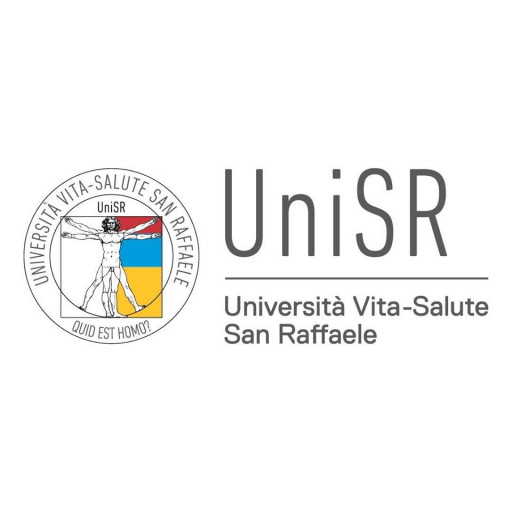The Bachelor of Ecology at the University of New England offers students a comprehensive and in-depth understanding of ecological principles, environmental science, and conservation strategies. This program is designed for individuals passionate about studying the natural world and seeking to contribute to the preservation and sustainable management of biodiversity and natural resources. Throughout the course, students will explore various aspects of ecology, including animal and plant relationships, ecosystem dynamics, conservation biology, and human impacts on the environment. The curriculum combines theoretical knowledge with practical skills, enabling graduates to analyze ecological data, design conservation projects, and implement environmental management plans.
Students will have the opportunity to engage in fieldwork and laboratory research, gaining hands-on experience in ecological assessment and monitoring techniques. The program also emphasizes multidisciplinary approaches, integrating aspects of geography, environmental policy, and sustainability studies, preparing students to address complex ecological challenges. With dedicated modules focusing on conservation strategies, ecological modeling, and habitat restoration, graduates will be well-equipped for careers across environmental agencies, research institutions, conservation organizations, and private sector companies. Additionally, the program encourages critical thinking and ethical considerations regarding human-environment interactions, fostering responsible and informed environmental stewardship. Graduates of the Bachelor of Ecology will possess the scientific skills, practical expertise, and ethical foundation necessary to contribute meaningfully to ecological research, environmental management, and policy development. The program aims to develop environmentally conscious professionals who are prepared to tackle pressing ecological issues in local, national, and global contexts.
Detailed Course Facts
Application deadline You are advised to apply as early as possible Tuition fee- EUR 15500 Year (National)
- EUR 15500 Year (International)
Duration full-time 36 months Languages Take an IELTS test
- English
Course Content
Course Aims
Ecology is the scientific study of the interactions that determine the distribution and abundance of organisms. An ecologist is a biologist who studies the relationships between organisms and their environment. The aim of this three year degree is to train students to be practising ecologists. From this degree, graduates will be able to call themselves an Ecologist - government agencies, consulting firms, research laboratories, botanic gardens, museums, and in private industries such as those that produce energy, timber, and fish. Ecologists work outdoors or in laboratories and in this degree we aim to train a work-ready graduate through field and practical laboratories. A BEcol graduate will also be able to undertake a final Honours year that prepares them for HDR studies or provides them with additional qualifications for workplace entry.
Learning Outcomes
Upon completion of this course, students will be able to:
Graduate Attributes
Knowledge of a Discipline
The knowledge-base of ecology and ecological systems is taught from yr 1 through to yr3. In the Foundation Unit, ECOL100, the philosophy of ecological thinking (both European and indigenous) is the key starting point. This is taught via lectures including oral presentations from distinguished ecologists. Knowledge is also gained from an evaluation of literature and philosophers and assessed using on-line quiz formats, role playing and literature reviews. In later years ecological theory is imparted via lectures, practised in practicals and assessed via exams.
Communication Skills
Ecologists must be effective communicators. This is taught by developing the quality argument based on quality of evidence paradigm and it is instilled in all assessable tasks. It is taught using a variety of tools including scholarly writing, oral presentations and a debate format is planned for ECOL100 and ECOL300 activities.
Global Perspectives
As ecological systems are part of the biosphere, the global perspective is drawn upon in all areas involved with evaluating the utility of data sets. Ecological knowledge is built upon from information gathered from ecological systems in similar biomes. Thus teaching will draw upon case studies in the peer reviewed literature from biomes across the globe. With this is the up skilling of students so that their work (particularly at 3rd yr) meets best international practices.
Information Literacy
Students will be taught how to access the literature (especially on-line resources), how to evaluate the robustness of literature sources (discrimination skills) and how to critique available information. Students will then practise these skills through the generation of reports, oral presentations and data base establishment and management.
Life-Long Learning
The ability to be a critical thinker and an objective decision maker is a key life-long skill for Ecologists. This will be instilled be the experiential learning dimensions of the Units where reflection on performance reveals alternative pathways to explain phenomena.
Problem Solving
Ecologists are faced with problem solving in three key areas; the elucidation of the problem, the compartmentalizing of the problem and the testing of hypotheses around the problem. These basic principles are the backbone of the Bachelor of Ecology and all practical assignments are geared for the instillation of this key set of skills.
Social Responsibility
Now more than ever, and as concern for the environment intensifies, ecologists are increasingly being called away from the role of scientist and into policy and public consultation. Ecology is wrestling between two models of science: a science apart from society and a science directly engaged with society. The social responsibility of Ecologists in society will be one of the debate topics in the Foundation Unit ECOL100, and again in Year 3 after two years of training where the habits of evaluating the pros and cons of diverse arguments are recognised.
Team Work
All students undertaking practical work in the field and laboratory will be regularly working in teams. The foundations for this will begin in 1st year and continue through to 3rd year. The benefits of team work such as, the sharing of creativity; task solutions and satisfactions; skills development, peer support underpinning a diversity of ideas are positive attributes for the Bachelor of Ecology student. In addition to being practiced, the team will be assessed by group presentations.
English Language Requirements
IELTS band : 6.5 TOEFL iBT® test : 91
To study at this university, you have to speak English. We advice you to
take an IELTS test. More About IELTSRequirements
A candidate shall be qualified for admission (see Admission Rule Undergraduate Policy).
Assumed knowledge 2 units English and
Recommended study of 2 units Maths.
UNE offers Foundation studies in Mathematics for students who do not have the recommended background knowledge. International students must satisfy the UNE English language requirements.
Work Experience
No work experience is required.
Related Scholarships*
- Academic Excellence Scholarship
"The Academic Excellence Scholarship can provide up to a 50 % reduction in tuition per semester. These scholarships will be renewed if the student maintains superior academic performance during each semester of their 3-year Bachelor programme. The scholarship will be directly applied to the student’s tuition fees."
- Alumni Study Travel Fund
Scholarships for students who are already attending the University of Reading.
- Amsterdam Merit Scholarships
The University of Amsterdam aims to attract the world’s brightest students to its international classrooms. Outstanding students from outside the European Economic Area can apply for an Amsterdam Merit Scholarship.
* The scholarships shown on this page are suggestions first and foremost. They could be offered by other organisations than University of New England.
The Bachelor of Environmental Science (Ecology) at the University of New England offers students a comprehensive education in the fundamental and specialized aspects of ecology and environmental science. This program is designed to provide students with a solid grounding in biological sciences, environmental management, and conservation strategies, equipping them with the skills necessary to address current ecological challenges. Throughout the course, students engage with a diverse range of topics, including ecosystem dynamics, biodiversity, conservation biology, climate change impacts, and sustainable resource management. The curriculum combines theoretical study with practical applications, ensuring graduates are well-prepared for careers in environmental consulting, conservation organizations, research institutions, and government agencies.
Students have the opportunity to undertake fieldwork and laboratory studies, which are integral parts of the program, fostering hands-on experience and a better understanding of ecological processes in real-world settings. The program also emphasizes communication skills, critical thinking, and problem-solving abilities to prepare graduates for interdisciplinary work in environmental science. In addition to core scientific courses, students can choose elective subjects related to environmental policy, spatial analysis, and community engagement, allowing for specialization according to individual interests and career goals. The University of New England supports its students with experienced faculty, modern facilities, and research opportunities, encouraging participation in ongoing ecological research projects.
The program typically spans three years of full-time study and may include opportunities for internships, field placements, or study abroad experiences to enhance employability and global awareness. Upon graduation, students are equipped to contribute to ecological research, environmental policy development, and sustainable management practices. The Bachelor of Environmental Science (Ecology) at UNE is committed to fostering environmentally responsible graduates who are capable of making meaningful contributions to the conservation of natural resources and the sustainable development of ecosystems worldwide.









